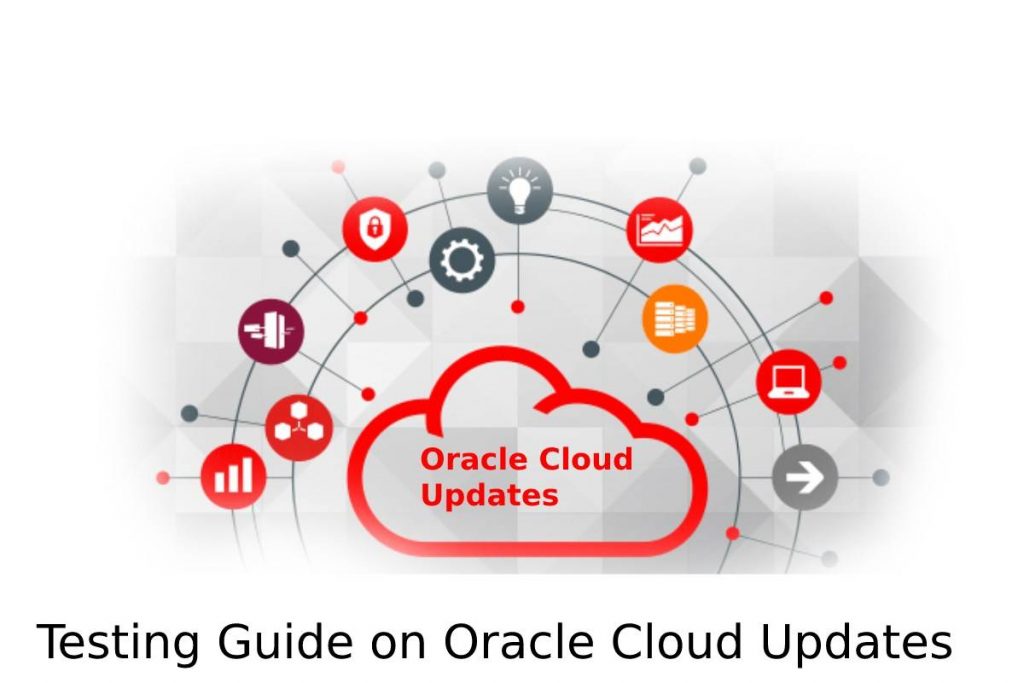Enterprises that have been using Oracle Cloud apps to streamline their business processes cannot undermine the importance of testing. Since Oracle follows the principle of continuous innovation, it rolls out quarterly updates, comprising customers’ enhancements and new features to help them efficiently and effectively manage their business processes. However, Oracle quarterly updates are no less than a nightmare to business analysts and end users as they need to perform regression testing.
Regression testing can be very frustrating for users and business leaders who try hard to balance the needs of the business with IT participation in IT projects. Furthermore, the short testing cycle of two weeks also put excessive pressure on QA teams. Enterprises that use manual testing approaches are struggling to keep pace with the depth and frequency of Oracle Cloud updates.
Table of Contents
Reasons:
- Manual testing approaches are time consuming and requires many clicks. Just a single test scenario may take hours due to too clicks, data entry across forms and navigation through multiple screens.
- Oracle quarterly updates means 4 releases per calendar year. Each Oracle release requires testing at least twice – once in test environment and then in production, making regression testing at least 8 times/year. Manually doing this can be very labour-intensive.
- Manual testing approaches not only cost you precious days but it can also impact business continuity due to inadequate test coverage and human errors.
Keep pace with Oracle Cloud Quarterly Updates using Test Automation
Test automation eliminates repetitive manual steps out of regression testing, enabling Oracle customers to seamlessly handle frequent updates. By automating testing, you can significantly improve test execution speed, enhance accuracy and achieve adequate test coverage to keep business disruption risks due to updates at bay.
Although, Oracle test automation is very critical to avoid technical debt, however, it is not as simple as it appear. The market is flooded with so called Oracle test automation platforms that include both open source and proprietary, however, it is still unrealistic to say that they’re capable of handling the complexity of Oracle Cloud apps.
Given below are the top challenges of Oracle Application test automation:
- To ensure robust GUI controls, support for Oracle Forms is required. However, many test automation platforms don’t have native support Oracle forms, making it really challenging tests up to date.
- Many test automation frameworks require programming language to create test cases. However, creating test automation scripts for Oracle is really challenging due to difficulty in finding the dynamic locators.
- Some test automation platforms use static test scripts. These scripts fail to accommodate changes such as new screens, buttons or user flows are made to Oracle apps, resulting in test failures, flaky/brittle tests, and build failures.
Addressing Oracle Cloud Test Automation Challenges with Opkey’s
No-code Test Authoring: Opkey is the only Oracle test automation framework that eliminates the complexity of test case writing with its AI-powered technology. Opkey uses natural language processing (NLP) that eliminates the complexities related to traditional test automation by allowing business analysts, manual testers, QA Managers, and stakeholders to create test cases in plain English language. Opkey’s AI-powered algorithm autonomously converts those test scripts into automation scripts to significantly reduce test authoring time. Since anyone from the product development or project management or the client-side can contribute towards testing, Opkey ensures 100% coverage for risks.
Self-healing: Opkey is an Oracle aware framework and perfectly addresses challenges related to changes in Oracle’s object property (Name, ID, Xpath, CSS etc.). Opkey’s machine learning driven Self-healing technology automatically identifies changes in the locators and autonomously heals the test scripts, making testing process will be more efficient and effortless.
Ai-powered Test Recommendations: Opkey’s Ai-powered Oracle test automation platforms perfectly answers what to test with every Oracle quarterly update. Opkey’s AI-powered engines automatically identifies what objects are at risks and recommends test scripts that need to be executed. Instead of executing the entire test suite, QA teams can execute most at risks test cases.
Summing up
Enterprises that want to leverage Oracle’s continuous innovation need to transform their testing. Test automation frameworks like Opkey provide them the speed and agility that they have been looking for to stay ahead of the game.
